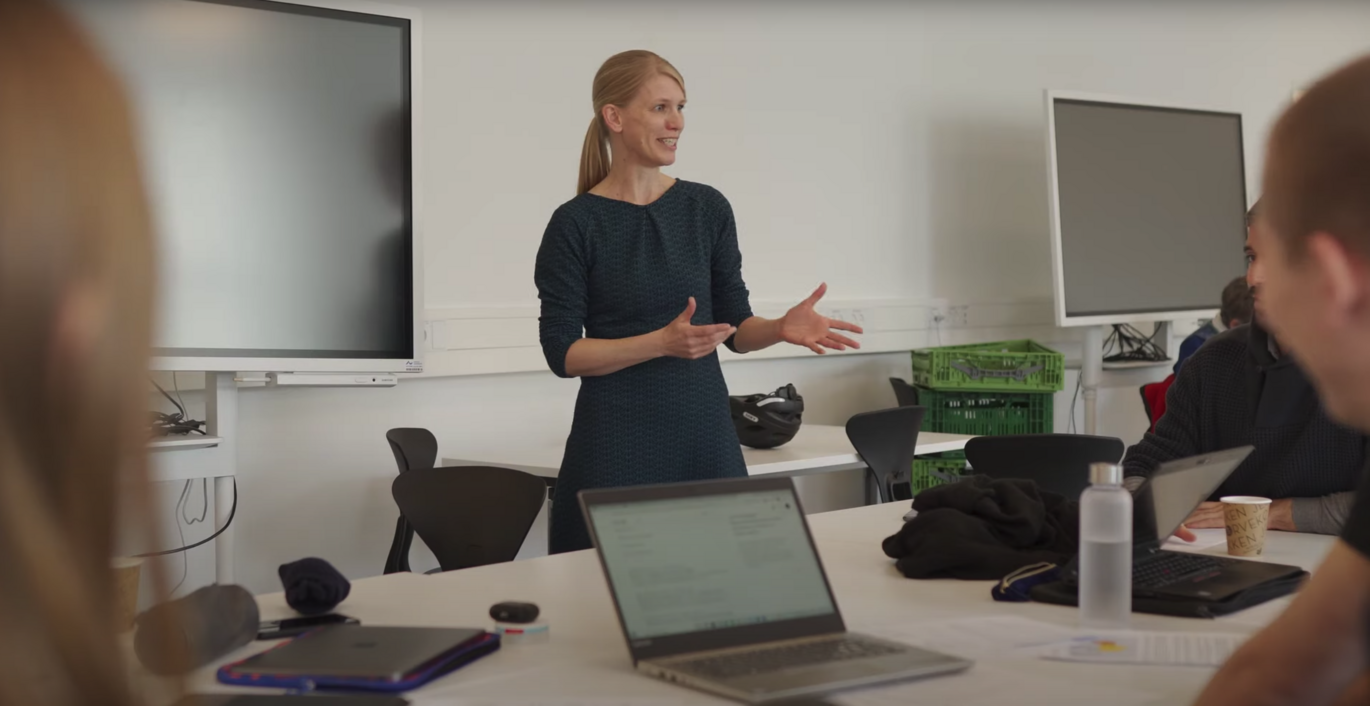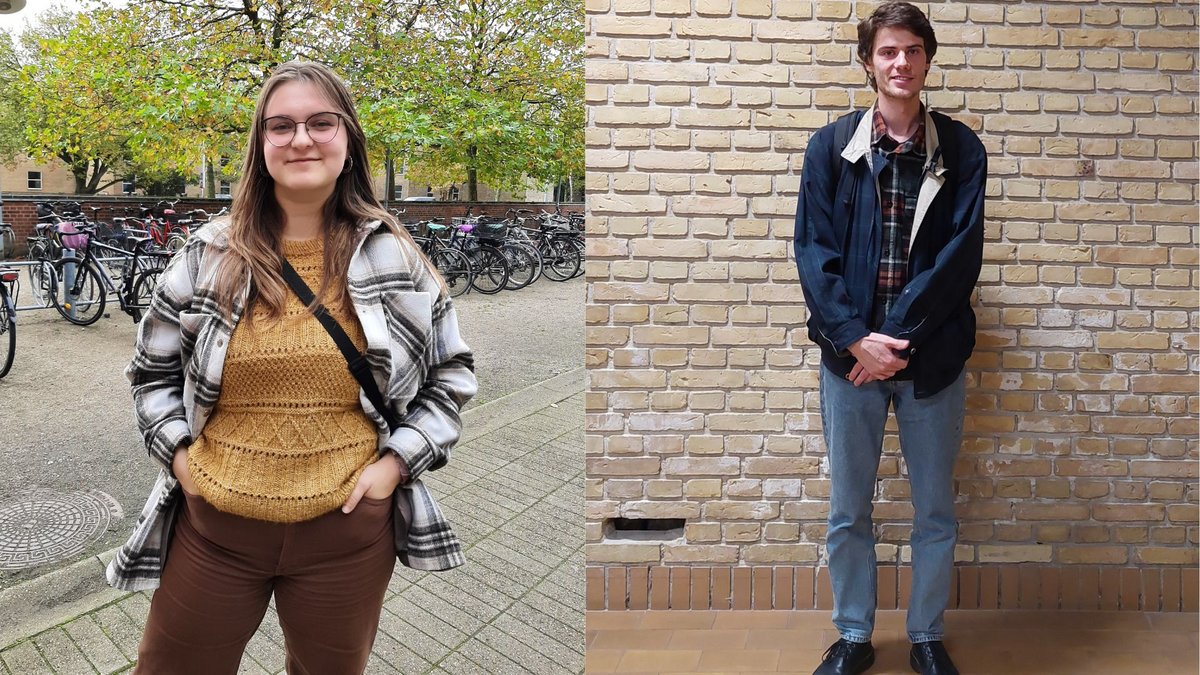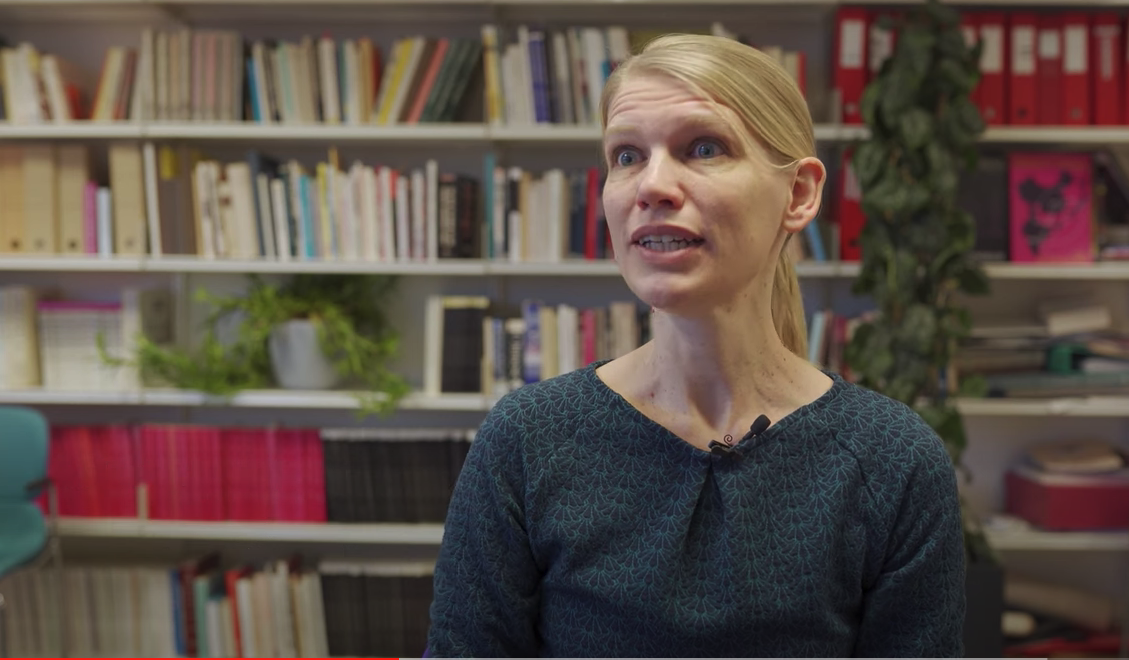Eight months of Russian invasion in Ukraine has changed Russian Studies: “I am on a different degree programme than I imagined when I applied”
Russian Studies at AU looks very different today than it did eight months ago, when Russia invaded Ukraine. There is more solidarity, the syllabus has changed, and the exchange programme to Russia has been replaced with a study abroad period in Latvia. In this article, students and lecturers explain their new academic reality on the programme.

Although students and lecturers on the Russian Studies programme have always acknowledged Russia as a volatile country, it still came as a shock when they woke up on 24 February to discover that President Vladimir Putin had given his soldiers orders to invade neighbouring Ukraine.
As the Ukrainians fought back, it quickly became clear for students and lecturers on the programme that big changes lay ahead. The fourth-semester exchange students, who had just arrived in Saint Petersburg, had to be brought home in a hurry, and the students’ course materials suddenly required an update.
That was eight months ago. And while most people back in February hoped that the war would be over quickly, the opposite has turned out to be true.
“It’s like walking around in a fog. Or maybe not a fog, but there is some kind of atmosphere. The war is always there. At the start, we were constantly bombarded with new and massive amounts of information. But now we have learned that it’s better for our mental health to get a bit of distance,” says Daniela Lange Andersen, a third-semester student on the Russian Studies programme.
After a hectic period at the beginning of the war, we have returned to some sense of normality, explains Frederik Edsberg Hansen, also a third-semester student on the programme.
“But new events continue to unfold in Ukraine or Russia on a daily basis. Our lecturers ask us about these events, and we try to talk about them in Russian – and in this way we expand our vocabulary. In our language module, we use a grammar book called ‘Russia and Russians today’, which our lecturer has updated as much as possible to keep it relevant. Because there is a completely different reality in Russia now,” he says.
For example, a chapter on the Russian labour market and the Russian economy had to be revised to include the impact of recent Western sanctions.

Student: Now I’m on a kind of mission
Frederik Edsberg Hansen cannot help keeping up with the events of the war. He sees it almost as a duty. For him, the war has made it even clearer that we need more people in Europe with an in-depth knowledge of Russia.
“This has made my degree programme easier and much more interesting for me. I feel like I’m on a kind of mission now. I think it’s cowardly to give up just because things have got a bit more difficult to talk about.”
“I can clearly remember our first class after the war began, when our lecturer Galina came in and said: “It’s vital we stick to it now”. Because it had suddenly become essential that there were people trying to understand what was going on over in Russia. Nobody could have predicted what would happen. But if we can go some way to increasing our understanding across countries, it will make a huge difference,” says Frederik Edsberg Hansen.
Students are helping Ukrainian refugees
Like many of his fellow students, after the war began, Frederik Edsberg Hansen engaged in voluntary work to help Ukrainian refugees. He used the Russian he’d learned as part of his degree programme to help him in this role. Along with aid agencies and the municipality, he served food for Ukrainians and helped them with practical things, such as getting a NemID. He also taught Danish to Ukrainian children as part of a play and learn club.
It is this type of voluntary work that Birgitte Beck Pristed, lecturer on the Russian Studies programme, highlights when she explains how the students have adapted to the situation. And she also needed to adapt.
“To give a specific example, it’s extremely difficult to keep the syllabus updated. And academic articles usually take a year or two to get through the peer-review process, so at the moment we’re constantly battling to keep our course material up to date with the latest developments.
As a researcher, Birgitte Beck Pristed is also affected by the fact that collaboration between Denmark and Russia has been suspended.
“It’s almost impossible to maintain our networks and contacts, and the conditions for collaboration have become extremely difficult. Several Russian researchers now find themselves in a difficult situation. As do the Ukrainian researchers who have been forced to flee, so it is a disaster for both countries,” she says.

Therapy drinks with the lecturer
The situation in Ukraine has brought the students closer together, explains Daniela Lange Andersen. For example, during the first few months of the war, they came up with the idea of therapy drinks. One Friday a month before the customary Friday bar, students could meet up with AU researcher Jeremy Morris and discuss the situation in a safe and calm environment, outside the usual teaching setting.
“Our social gatherings have become a little more meaningful”
“Our social gatherings have become a little more meaningful. They are more than just social events. Now it is about being able to discuss our frustrations, confusion and sadness about the war. We need to be able to acknowledge and talk about these things together,” says Daniela Lange Andersen.
“Therapy drinks was different than being in class because it was very relaxed. We did this until September. Now it has become more of a social thing, but of course it’s still a good opportunity to talk about the war,” says Daniela Lange Andersen.
Riga has replaced Saint Petersburg
One of the more significant implications of the war for the students’ degree programme is that it is no longer possible to do a language exchange in Russia, as was common practice in previous years. Instead, the lecturers had to think outside the box, explains Birgitte Beck Pristed.
Some of the students who had their exchange cancelled at the last minute last year because of Corona restrictions and students in their fourth semester who had to leave Russia quickly once war broke out have been on exchange in countries such as Estonia, Latvia, Georgia and Armenia over the summer.
“It has been extremely interesting to hear about all the knowledge and first-hand experience they have brought back from Russia’s neighbouring countries, where they observed tensions between the Russian-speaking minorities and the local populations (in the countries they visited, ed.). They also witnessed Russian refugee flows in these areas. So, in this way, we have added new dimensions and new destinations to our subject,” says Birgitte Beck Pristed.
In the future, fourth-semester students will travel to Latvia’s capital, Riga, to complete their exchange. This was a decision made partly by the students themselves after members of teaching staff presented them with various options.
A more Baltic focus
Frederik Edsberg Hansen is frustrated that it’s no longer possible to do an exchange programme in Russia, but he understands why.
“I have never been to Russia and I probably won’t be able to go there for many years to come”
“The situation there is so extreme that it would be completely unrealistic. And I wouldn’t want to be in Russia at the moment, because I’m not prepared for that at all. So I can understand why the university has suspended its collaboration with Russia.
“I have never been to Russia and I probably won’t be able to go there for many years to come. But then I can focus on the Baltic region instead, and that suits me perfectly. I think it is an exciting region, and there are many Russian speakers in Riga,” says Frederik Edsberg Hansen.
Daniela Lange Andersen speaks Lithuanian because her mother is from Lithuania. She has also lived in Latvia and Lithuania, where she attended a Russian-speaking kindergarten. This is partly why she is positive about the opportunity to go on exchange in Riga, even though she points out that it will probably be more difficult to practice her Russian there than in Russia.
“I am taking a degree programme with a different perspective than when I applied. I can be annoyed about that or happy about that. Personally, I think it’s exciting. Especially because I already have a relationship to the Baltic region. It will be interesting to explore the area I’m from academically. But I can also understand the people who are frustrated. I would also have liked to travel to Russia,” she says.
Nuances are important when studying Russia
According to the two students, the picture painted by the media – and thus also the public debate surrounding the war – is very black and white when it comes to Russia. But not all Russians support Putin, and not all the information coming from Ukraine is true.
“I am 100% on Ukraine’s side. But in Denmark we are perhaps too quick to buy the Ukrainian narrative. Ukraine is still the most corrupt country in Europe (according to Transparency International, ed.). That has not changed. But so many significant things are happening in Ukraine right now. This is their defining nation-building moment,” says Frederik Edsberg Hansen.
Daniela Lange Andersen thinks it can be difficult to explain the situation to outsiders from a Russian perspective – a perspective that she has got to know during her studies and that she believes is important to understand if we wish to comprehend what Putin is doing.
“On the one hand I am completely against what is happening, but on the other hand I also need to understand the nuances and present these nuances in a way that does not sound like I’m trying to forgive the Russian invasion”
“On the one hand I am completely against what is happening, but on the other hand I also need to understand the nuances and present these nuances in a way that does not sound like I’m trying to forgive the Russian invasion,” says Daniela Lange Andersen.
“It is also difficult to explain the situation to my family. My mother grew up in a country that had a tense relationship with Russia. And when I try to explain the background from a Russian perspective, I sound like an apologist for Russia, even though I’m just trying to communicate information that also plays a role,” she says.
A hope for peace
While Frederik Edsberg Hansen spends much of his spare time following the developments of the war, he also has moments when he asks himself what it’s all about.
“It’s difficult when you see videos from Russia of Russians who are completely brainwashed. It makes you think: What on earth am I dealing with here? But then you just have to pull yourself together and remind yourself that it’s more complex than that,” he says.
For now the only thing students can hope for is that Putin’s war in Ukraine ends as quickly as possible.
“The regime could collapse tomorrow, in a year, or in ten years. Nobody knows. I am clinging to the naive hope that Russia will once again open up to the rest of the world, and, when it does, we will need to re-establish our relationship to the country – perhaps in a better way than we did before,” says Frederiks Edsberg Hansen.

